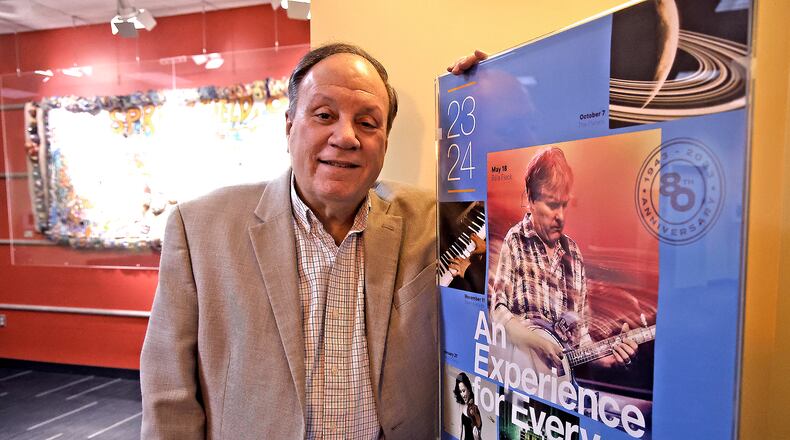The Springfield Symphony Orchestra (SSO) — with sponsors Clark State College, the Springfield Foundation and the Turner Foundation — will present the program “Economic Impact of the Arts” at noon Jan. 23 at the Hollenbeck Bayley Creative Arts and Conference Center, 275 S. Limestone St. Admission is free with RSVP requested, and box lunches will be available.
Randy Cohen, vice president of research for Americans for the Arts, will be the guest presenter.
In the winter and spring of 2023, Culture Works, a Dayton-based nonprofit organization working for funding, advocacy and service for arts programs, partnered with several local arts organizations to complete surveys from Arts & Economic Prosperity 6 (AEP6), an economic and social impact study of the country’s nonprofit arts and culture industry. Attendees at local performances completed the surveys.
The SSO was one of several Clark County arts organizations to participate in the survey, and when Lou Ross, its executive director, heard Culture Works was bringing Cohen to the area to present the program over two days, he worked with his board president, John Landess, to get Cohen to Springfield.
“We had a lot of thoughts about this: not just what is good on stage but what the residual is and what it means to the economy,” Ross said. “This study goes everywhere — it affects people employed by the arts, the audience and other things, including where people may go for a meal before a show or a post-show drink. The report is also important to legislators and for funding opportunities.”
He said other considerations on how arts bring in money to a community include when guest artists bring in a full company of performers and crew who may eat meals, use local lodging, shop and maybe work out at gyms.
Landess, who is also the executive director of the Turner Foundation, has seen the impact of the arts on the Springfield community and was eager to partner to present the program.
He got an idea of how many local artists there are when the Hatch Artist Studios opened, allowing them to share their talents with the public and connecting other artists in the community. It also helps nurture the next generation of artists here.
“The arts are the other half of life. They cover so many areas that add beauty to everyday life,” he said. “We listen to music, there’s all the murals, things that can add beauty and convey messages that help us think outside of the normal realm.”
He also said having a venue like the Clark State Performing Arts Center featuring national acts also brings in people from outside Springfield to spend money.
“It’s more important than people may give it credit for. There is a business impact the arts have on a community, but also a quality-of-life perspective it plays a role in,” said Landess.
Springfield Civic Theatre is a smaller organization, but one with longevity of 90 years in the community. It also distributed the survey at its shows. Civic president Suzanne Grote said it asked how audiences spent money, including if they went to dinner beforehand, for example.
“It’s certainly informative. It can at least provide some guidance and give more information on making decisions about your shows going forward like what an audience will pay for admission or go do before or after,” she said.
Cohen will discuss the national study and how it ties into regional demographics. The geographic definition of the region includes Clark, Greene, Miami and Montgomery counties.
Ross hopes in addition to local arts organizations and their boards that local legislators will attend and anyone interested in what arts offer a community beyond what goes on the stage.
“It’s eye-opening, we’re bringing valuable information for all of us,” he said.
Anyone wishing to attend should RSVP the Springfield Symphony office by Jan. 16 by emailing at info@springfieldsym.org or call 937-325-8100.
About the Author

